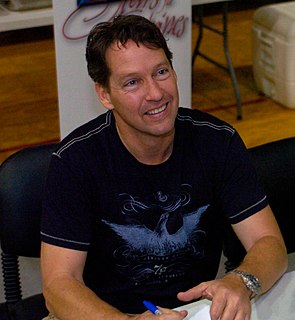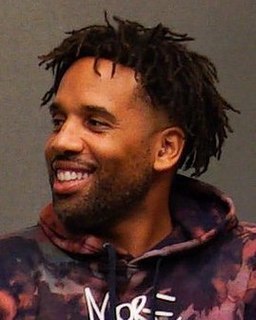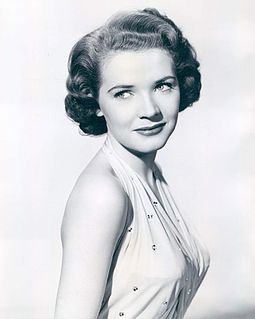A Quote by D. B. Sweeney
I know some black actresses who have to wait every 19 films for a role. I can be cast in practically every one as a young white male.
Related Quotes
I see Americans of every party, every background, every faith who believe that we are stronger together: black, white, Latino, Asian, Native American; young, old; gay, straight; men, women, folks with disabilities, all pledging allegiance under the same proud flag to this big, bold country that we love. That's what I see. That's the America I know!
A young man who came from Columbus, Ohio and made it, and who wants every other young man and young woman, black or white, to know that if I could do it, they could do it. Me and my fans grew up together, and I believe they know I'm a walking billboard and proof of that. That's what I see when I look in the mirror.
We are Christian and Jewish and Muslim and Hindu and none of the above. We are gay and straight. We are black, brown, white, and innumerable combinations. We are young and old, female and male, with and without disabilities, urban and rural, and liberal and conservative. Every one of us is an equal American.
I managed to get a short film with Channel 4 Films. I cast a young actor who'd done a bit of television before, a young actor called Ewan McGregor. That was very first thing. This writer had won this competition, and I made this little short, black and white movie. I think for both Ewan and I it was the start of our careers.
I look at Woody Allen's prolific career of 30 or 40 films, and I'm watching the clock. I'd love to work at a clip of a film a year. We don't get the benefit of the doubt, particularly black women. We're presumed incompetent, whereas a white male is assumed competent until proven otherwise. They just think the guy in the ball hat and the T-shirt over the thermal has got it, whether he's got it or not. For buzzy first films by a white male, the trajectory is a 90-degree angle. For us, it's a 30-degree angle.
I saw several actresses play the part. I did not in fact, as far as I know, do anything that any of the other actresses did. I don't think actresses do that. I think that what we do is we see a role as a role, we don't see it as a person. We look at the role and think, 'What can I, as an actor, bring to that part?
You know, independent films have been institutionalized, practically. Every studio has got a boutique arthouse label. There's like, 18 different independent film-financing funds. In fact, I think the children of those films are getting made. A more interesting question is whether those films are going to get seen and appreciated.


































